What comes to our mind by seeing the emerging open-source and open-gate information revolution? (most Netizens may think this as an avenue to be creative, in terms of manipulating and exploiting the deep Web--with the freedom and choice to use the Read-Write Web, 24X7, via blogs, wikis, and second life in nano-seconds)
"We the users turned creators and distributors of content are TIME's Person of the Year 2006, and AdAge's advertising agency of the year. We form a new Generation C. We have MySpace, YouTube, and OurMedia; we run social software, and drive the development of Web 2.0. But beyond the hype, what's really going on?" Blogs, Wikipedia, Second Life, and B... >>>>>>-----
The following links may make us think (indirectly, albeit) about a role libaries may have in promoting best practices for knowledge sharing:
- [KG Audit Disc] Is Knowledge inequality an open invitation to mass-destruction of knowledge? [Read my views on how a revolutionary timesaving approach, "cut and paste" has metamorphosed into a fancy synonym for organized knowledge piracy, and on a bigger canvas as a psychological disorder that needs to be checked.
Looking forward to your views.
Best wishesSaurabh]
- Copyright, Copyleft & the Creative Anti-Commons
- Cut/Copy/Paste - Three Shortcuts That Killed Creativity ...
- CARL - The Cyberspace Is Not A "No Law Land"
- ControlC: Turning Cut & Paste Into A Web Service
- KnowledgePerson.com blog: Why understanding is knowledge
- Knowledge as information in transition
- YouTubers cut and paste at their peril - Technology - smh.com.au
- Carnegie Mellon Libraries: Information Ethics Problem of the Month ...
- Libraries Unleashed: the Guardian Tackles Library Technology Issues
- Disconnects Between Library Culture and Millennial Generation Values
- Study of Internet's Impact on Museums and Libraries
- Book publishers seek ways to adapt to Web SiliconValley.com
- Encyclopaedia Britannica Goes -- Gasp! -- Wiki
- Stealing slogans from the Web
- Tragedyof the Commons Revisited: Librarians, Publishers, Faculty and ...
- Hackers, phishers can't get away with it like they used to By Jon Swartz, USA TODAY
- Sell More by Sharing on Peer to Peer Networks
They say that piracy on the Internet decreases sales. Everywhere you hear figures in hundreds of millions dollars/euros of revenues lost by sellers of music, movies, software and books.
Is it really true? Can you have a different take on sales by sharing? Here is a different story.
Paulo Coelho, author of books such as “The Alchemist” and “The Witch of Portobello”, sold over 100 million books last year. He puts this success down to BitTorrent, as he saw a huge increase in sales when his books appeared on sites such as The Pirate Bay.
Labels: Best Practices, Distribution, Information literacy, Knowledge management, Librarians, Libraries, Professional development, Publishers



